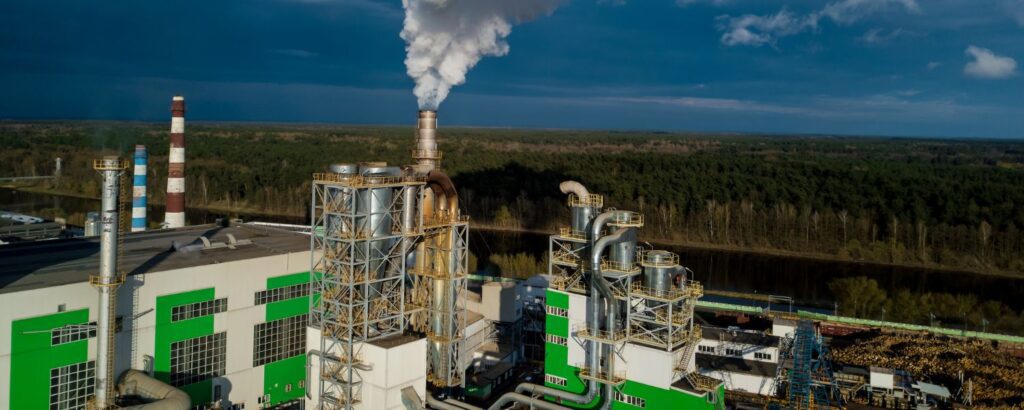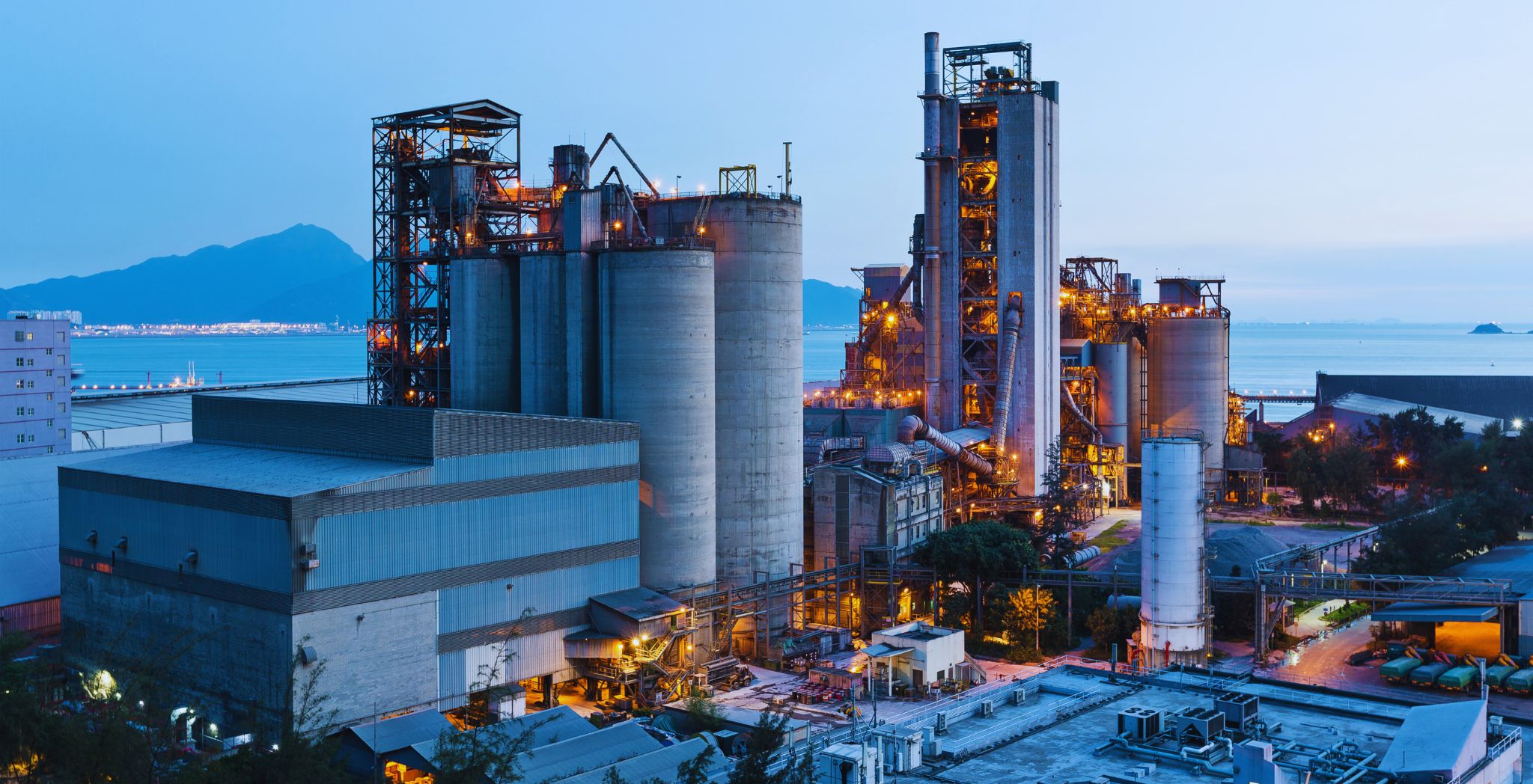In today’s fast-paced world, industrial sustainability is more vital than ever. As industries grow and our planet’s resources become increasingly strained, adopting sustainable practices is not just beneficial—it’s imperative for our survival.
These practices help minimize environmental damage while promoting a sustainable operational model for the long term.
Embracing industrial sustainability solutions is about taking responsibility for our global footprint, demonstrating care for future generations, and preserving the natural world we depend on.
It’s a crucial step towards ensuring that our planet remains vibrant and viable for years.
Define Industrial Sustainability

Industrial sustainability is more than operational efficiency; it represents a harmonious relationship between industrial growth and environmental stewardship. At its core, it involves redefining how industries use natural resources today to ensure availability for future generations.
This includes refining production processes, shifting consumer demands, and innovating product designs to reduce environmental impact.
By incorporating industrial sustainability ideas into their strategies, businesses are prompted to explore new markets and create products that align with sustainable practices.
This approach shifts the traditional focus from short-term gains to long-term value creation, integrating environmental considerations directly into business models and encouraging industries to act as stewards of economic and ecological well-being.
Understanding Industrial Sustainability

Understanding industrial sustainability involves more than just integrating technologies; it’s about reimagining how industries operate in harmony with the natural world. At the heart of this approach lies a commitment to sustain and enhance our environmental resources for future generations.
This commitment is vital in sectors with significant environmental impacts, such as manufacturing and construction.
Industrial sustainability solutions advocate for a more innovative use of resources. This means not just using less but using better—optimizing every bit of material and energy to its fullest potential.
Reducing emissions becomes a goal and a benchmark for innovation, pushing industries to develop cleaner processes and products. Moreover, promoting recycling and reuse isn’t just about minimizing waste; it’s about creating a circular economy where every end is a new beginning.
These practices are not merely technical fixes but are transformative strategies that require a cultural shift toward sustainability within industries.
Environmental Impact of Industrial Practices

The environmental impacts of traditional industrial practices have long been a concern, contributing significantly to global environmental degradation. Here’s a humanized and detailed exploration of how these impacts manifest and how adopting sustainable industrial development can change the narrative:
1. Air and Water Pollution
Industrial processes often release pollutants into the air and water, leading to smog, acid rain, and contaminated water bodies. This not only harms wildlife but also affects human health, causing respiratory problems and waterborne diseases.
Sustainable industrial development emphasizes using cleaner production technologies and stricter emissions controls to reduce these pollutants drastically.
2. Soil Contamination
Many industrial activities lead to the accumulation of hazardous substances in the soil. This contamination can render land unusable for agriculture and lead to harmful chemicals entering our food chain.
Industries can prevent soil contamination and promote a healthier ecosystem by implementing waste minimization strategies, such as properly treating and disposing of industrial waste.
3. Excessive Waste Production
Traditional industries are notorious for generating high volumes of waste, which end up in landfills or incinerators, contributing to further pollution.
Embracing sustainable industrial practices means prioritizing recycling and reuse, reducing the demand for raw materials, and minimizing waste output. This shift helps preserve natural resources and reduces the environmental burden of waste management.
Focusing on sustainable practices gives industries the power to mitigate their environmental impact significantly. Cleaner production techniques and waste minimization are not just optional; they are essential for a sustainable future.
By adopting these approaches, industries comply with increasingly stringent environmental regulations and contribute to a healthier planet for future generations.
Benefits of Sustainable Industrial Practices

Adopting industrial sustainability goals brings many advantages that enhance operational efficiency and corporate responsibility. These benefits align with regulatory compliance and cost management and position companies as leaders in the sustainable marketplace.
Here are these advantages explained in a structured and formal manner:
1. Enhanced Compliance with Environmental Regulations
Compliance with environmental regulations is a fundamental obligation for industries. By adopting sustainable practices, companies adhere to these regulations and align their operations with broader societal expectations for environmental stewardship.
This commitment supports the community’s well-being and preserves the natural environment for future generations.
2. Reduction in Waste and Energy Costs
Sustainable practices lead to significant cost savings through more efficient resource utilization.
3. Waste Reduction
Efficient use of materials helps significantly decrease waste production. This reduces the cost associated with waste management and conserves valuable resources, contributing to environmental sustainability.
4. Energy Efficiency
Enhancing energy efficiency through modern technologies and optimized processes lowers energy consumption. This reduction not only results in cost savings but also decreases the dependency on non-renewable energy sources, contributing to a reduction in the overall carbon footprint.
5. Improved Operational Efficiency
Implementing sustainable industrial practices often results in optimized operational efficiency. Streamlined operations minimize waste and redundancies, enhancing productivity and a more engaged workforce.
This increased efficiency boosts profitability and promotes a healthier working environment by reducing occupational stress and improving job satisfaction.
6. Competitive Advantage in the Marketplace
In an era of rising consumer environmental consciousness, companies that engage in sustainable practices are more likely to attract and retain customers.
This alignment with consumer values fosters customer loyalty and enhances the company’s image as a responsible business, thus providing a competitive edge in the market.
7. Attraction of Ethical Investments
Investors increasingly support companies with strong sustainability credentials. By prioritizing Sustainable innovation, companies can attract these ethical investors, which often leads to enhanced financial stability and additional resources to pursue further innovations in sustainability.
Challenges and Barriers to Industrial Sustainability

Adopting sustainable industrial practices is not without its challenges, each deeply intertwined with the human aspects of business operation:
1. High Initial Investment Costs
The substantial upfront costs required for sustainable technologies can be a significant barrier, particularly for smaller enterprises with limited resources.
2. Lack of Technical Expertise
There is often a need for more specialized knowledge for implementing advanced sustainable systems, making businesses hesitant to adopt new technologies due to fears of potential disruptions.
3. Resistance to Change Within Organizational Cultures
Cultural resistance within companies can slow the adoption of new practices. Changing long-established workflows and priorities requires a shift in mindset across all levels of an organization, which can be challenging to achieve.
Overcoming these barriers requires collaborative efforts, including government incentives, industry-led training initiatives, and a cultural shift within companies to prioritize sustainability. These steps make the transition more feasible and less daunting for all stakeholders.
Future Outlook and Opportunities

The future of industrial sustainability is promising, driven by technological advances and growing global awareness about environmental issues.
Innovations like AI and IoT are transforming the landscape of sustainable industrial practices, enabling real-time monitoring and management of ecological impacts.
These technologies make it easier for industries to adopt sustainable practices, promising significant environmental improvements and operational efficiencies.
As these innovations become more accessible, industries are poised to implement them, leading to widespread environmental benefits. Integrating AI and IoT is not just about competitive advantage; it’s about leading in a world that values sustainability as much as profitability.
The potential for positive change is immense, marking a crucial role for industries in shaping a sustainable future.
Conclusion
VectorGlobe stands at the forefront of industrial sustainability, driving the adoption of environmentally friendly practices across industries.
With a commitment to technological innovation and operational excellence, VectorGlobe is leading the way in demonstrating how industrial sustainability can not only comply with environmental mandates but also offer substantial economic benefits and competitive advantages.
As we continue to advocate for industrial sustainability, VectorGlobe remains dedicated to promoting a sustainable future that benefits our planet and its people, ensuring that the impact of industrial sustainability is positive and far-reaching.

